The document concludes that current hair loss treatments have limitations and suggests researching new treatments targeting different factors of hair loss.
November 2014 in “PharmaTutor” Finasteride may help postmenopausal women with hair loss but is not effective for all and should be used cautiously in premenopausal women.
 August 2014 in “Acta Crystallographica”
August 2014 in “Acta Crystallographica” Different forms of finasteride dissolve and remain stable differently, affecting capsule quality.
 March 2014 in “Journal of The American Academy of Dermatology”
March 2014 in “Journal of The American Academy of Dermatology” The new topical product combined with finasteride significantly increased hair thickness without side effects.
 December 2013 in “Reactions Weekly”
December 2013 in “Reactions Weekly” Some men taking finasteride for hair loss experienced anxiety, depression, and sexual problems, which sometimes continued after stopping the medication.
 November 2013 in “Hair transplant forum international”
November 2013 in “Hair transplant forum international” Some generic finasteride may be counterfeit, leading to less effectiveness and increased hair loss.
September 2013 in “Reactions weekly”  March 2013 in “Reactions Weekly”
March 2013 in “Reactions Weekly” A man's fertility improved after he stopped taking finasteride but worsened again when he restarted the medication.
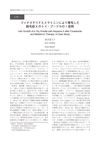 January 2013 in “Juui rinshou hifuka”
January 2013 in “Juui rinshou hifuka” A Toy Poodle with hair loss regrew hair after being treated with melatonin and finasteride.

Finasteride treatment slows down hair loss, boosts hair growth, and may increase hair thickness or length, but it can cause side effects like decreased libido and depression in less than 1% of people.
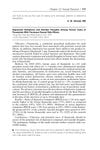 January 2013 in “Yearbook of Urology”
January 2013 in “Yearbook of Urology” Former finasteride users showed higher rates of depression and suicidal thoughts compared to those who never used it.
Finasteride impairs sperm quality and fertility in rats, even after stopping treatment.
 May 2012 in “15th International & 14th European Congress of Endocrinology”
May 2012 in “15th International & 14th European Congress of Endocrinology” Taking 1mg finasteride tablets for 6 months can lower good cholesterol (HDL) and raise triglycerides in men with hair loss.
 February 2012 in “Community oncology”
February 2012 in “Community oncology” Finasteride for hair loss may increase the risk of certain cancers and has side effects; better regulation and education on its use are needed.
Finasteride effectively reduces and reverses hair loss in men.
January 2012 in “Evaluation and Analysis of Drug-Use in Hospitals of China” Finasteride works best for hair loss when started early and is effective for most people.

Finasteride's effects on prostate cancer are not clear from this text.
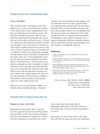 December 2010 in “Dermatologic Surgery”
December 2010 in “Dermatologic Surgery” Finasteride's effectiveness on the frontal hair loss area is not well-studied or confirmed.
 March 2009 in “The Journal of Urology”
March 2009 in “The Journal of Urology” Low dose finasteride causes only minor changes in PSA levels in men over 50 with BPH.
 June 2007 in “Nature Clinical Practice Urology”
June 2007 in “Nature Clinical Practice Urology” Finasteride for hair loss lowers PSA levels, so PSA values need adjusting when screening for prostate cancer.
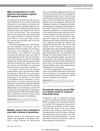 April 2007 in “Nature Clinical Practice Urology”
April 2007 in “Nature Clinical Practice Urology” Finasteride lowers PSA levels about the same whether taken at 1 mg or 5 mg daily.
 March 2007 in “Journal of Mazandaran University of Medical Sciences”
March 2007 in “Journal of Mazandaran University of Medical Sciences” Finasteride gel and tablet both have similar moderate effects in treating male hair loss.
 February 2007 in “Faculty Opinions – Post-Publication Peer Review of the Biomedical Literature”
February 2007 in “Faculty Opinions – Post-Publication Peer Review of the Biomedical Literature” Taking 1mg of finasteride daily for hair loss can lower PSA levels by 40-50%, so to keep PSA effective as a cancer screening tool, the PSA value should be doubled during treatment.
 January 2007 in “Inpharma Weekly”
January 2007 in “Inpharma Weekly” Dutasteride is more effective for male pattern baldness than finasteride, and black cohosh extract BNO 1055 is as effective as conjugated estrogens in treating postmenopausal symptoms, with added benefits in reducing sweating and mental symptoms.
Finasteride, a medication, is being re-evaluated for its effects and uses.
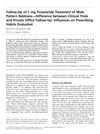 May 2004 in “Dermatologic Surgery”
May 2004 in “Dermatologic Surgery” Most men stopped using finasteride for baldness due to unsatisfactory results or were lost to follow-up, and those who continued saw minimal to moderate improvement.
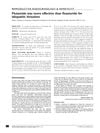 December 1999 in “Evidence-based obstetrics and gynecology/Evidence-based obstetrics & gynecology”
December 1999 in “Evidence-based obstetrics and gynecology/Evidence-based obstetrics & gynecology” Flutamide worked better than finasteride for reducing excessive hair growth in women, but had more side effects.
 May 1999 in “Drugs & Therapy Perspectives”
May 1999 in “Drugs & Therapy Perspectives” Finasteride helps increase or maintain hair in most men but can cause sexual side effects and should not be used by women, especially during pregnancy.
January 1999 in “Hair transplant forum international” Finasteride can help prevent future hair loss and improve hair restoration surgery results.
 November 1998 in “Hair transplant forum international”
November 1998 in “Hair transplant forum international” Finasteride is considered to have a low risk to fetuses.





















